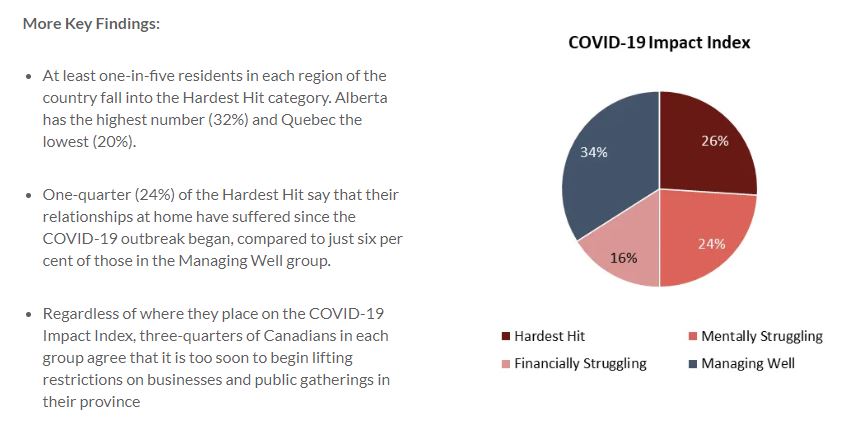
Many people across BC are experiencing increased levels of stress, anxiety, and depression during COVID-19.
This week is Mental Health Week in Canada and a recent Angus Reid survey indicates that half of Canadians say their mental health has declined with the pandemic still active with 16% describing themselves as depressed.
Mary Lu Spagrud with the Canadian Mental Health Association in Prince George told Vista Radio a situation like this can really take a toll on people who need social interaction.
“If you are a people person for a lack of a better term feeds off of being around other people and you’re finding yourself isolated in your home alone or only with one or two other family members that can have a lot to do with our sense of value.”
“Lacking a strong relationship can actually increase your risk of death the same as smoking up to 15 cigarettes a day, it’s a huge, huge part of that.”
She adds it’s up to us to make a meaningful connection with those that are struggling.
“We actually don’t stop and have that meaningful conversation with people saying I am ok, I am fine and we know that is likely not the case but we really don’t stop and say how are you really doing and that is part of the message we are trying to get out this week.”
“One thing that people have realized is how strong and important social connections are and not just that quick like on Facebook but a really, truly meaningful social connection and how much of a challenge that has become.”
BC recently launched the Pathway to Hope program to assist people struggling with mental health and addictions.
Other initiatives that are available include BounceBack – a free program for people experiencing low mood, depression, and anxiety as well as the Foundry Virtual Clinic for youth aged 12 to 24 and their families with low and no-cost community counseling available in many languages.
Over 5-million dollars has been provided for virtual mental health supports in BC to assist people including front line healthcare workers, young people who may be unsettled, as well as isolated seniors who are seeking help with day-to-day activities.


